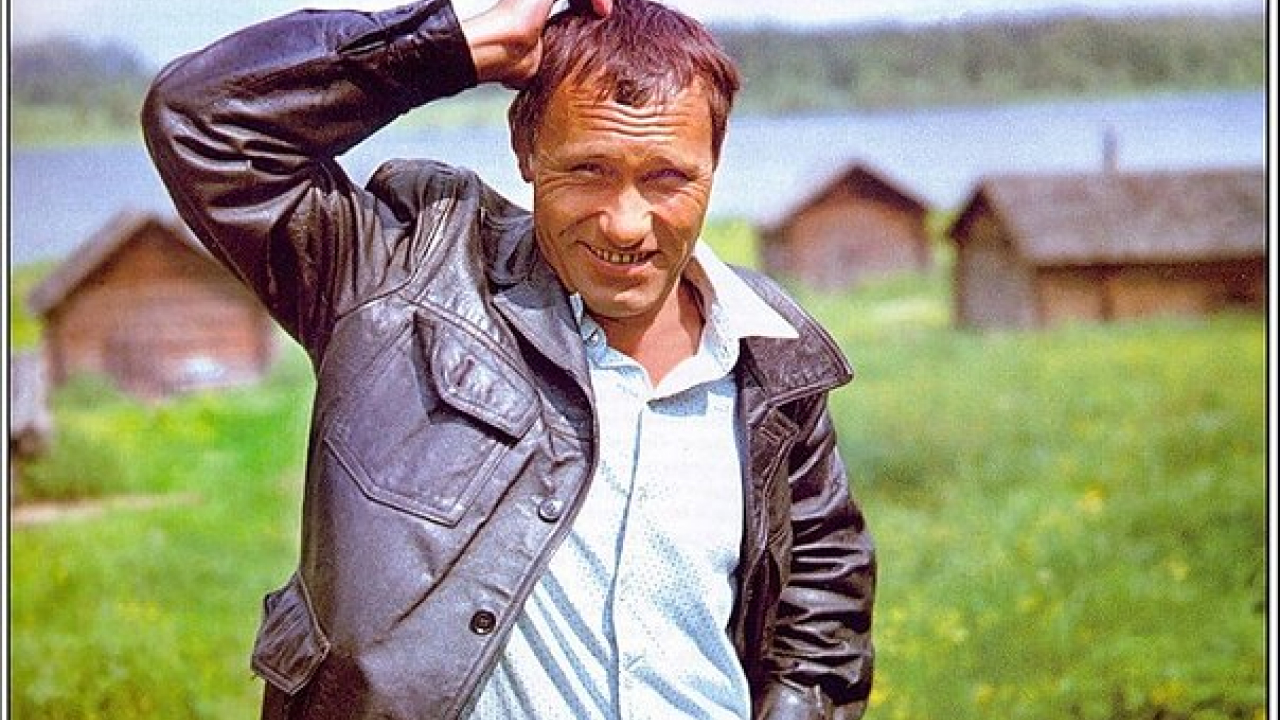Vasily Makarovich Shukshin was a bright and multifaceted figure in Soviet culture. Born on July 25, 1929, in the village of Srostki, Altai Krai, he grew up under challenging circumstances, with his father being repressed and his mother raising him alone. Through perseverance, Shukshin became one of the most renowned writers, directors, and actors of his time.
Shukshin entered literature in the late 1950s, publishing his first collection of short stories, “Village Dwellers.” His works, characterized by deep psychological insight and attention to the inner world of ordinary people, were a revelation for Soviet readers. Shukshin, coming from a rural background, knew and felt his characters well, making his prose sincere and lifelike. He focused on the lives of ordinary rural people, their problems, joys, and sorrows.
As a director, Shukshin also achieved significant success. His films, such as “Happy Go Lucky” (1972) and “Red Viburnum” (1974), became classics of Soviet cinema. In these works, Shukshin revealed himself as a subtle artist capable of conveying deep human emotions through simple yet touching stories. His cinematic language was straightforward and accessible, yet filled with profound meaning.
Shukshin was equally remarkable as an actor, starring in his films and those of other directors. His acting was always characterized by sincerity and authenticity, whether portraying a rural man or a complex dramatic character.
However, fate was not kind to Shukshin. He died at the age of 45 on October 2, 1974, while filming “They Fought for Their Country.” Despite his short life, his creative legacy continues to influence Russian culture. Vasily Shukshin left behind a rich literary and cinematic heritage that continues to inspire and touch the hearts of audiences and readers. His works teach us to see true heroes in ordinary people and to cherish every moment of life.

And now a quiz. From which works are the following phrases?
- “He doesn’t smell like bedbugs!… It’s the bedbugs that smell like cognac.”
- – “What kind of happiness is that?”
– “The most ordinary: a person discovers the world every day. He knows how to laugh, cry. And he knows how to forgive. And he does it sincerely. That is happiness.”
- ” The mother realized that this long man was hostile to her son and fell silent. My mother liked the prosecutor at first sight – he was attentive. I listened attentively to my mother, even though she spoke long and confusingly – that her son, Vitka, was good, kind, that he was sober and wouldn’t hurt a fly, that how could she be left alone now? That the girl, the bride, won’t wait for Vitka, that such a girl will be picked up with arms and legs – a good girl… The prosecutor listened to everything attentively, played with his fingers on the table…”
- “We had a scientist living with us—such a smart, intelligent, kind person, but he always forgot to zip his fly.”
- ” Oh, what deep, pure, miraculous beauty this is – a Russian song, and even when they feel it, they understand it. Everything is in it: our special cunning – kindly, and our silent sadness, and our genuine simplicity, and our clumsy, trusting love, and our strength – sometimes angry, sometimes kind… And great patience, and weakness, fortitude – everything .”
Choose the correct answer:
- “Mother’s Heart”
- “Red Viburnum”
- “Happy Go Lucky”
- “Lyubavins”
- “Red Viburnum”


